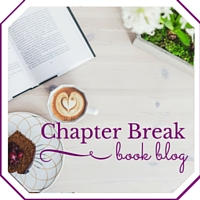How To Write Effectively In A World Full Of Distractions – Guest Post by Dave Chesson
Do you ever find yourself distracted and struggling to write effectively?
There are so many demands on a writer’s time and attention that it can be difficult to get into the zone and produce your best work. Writing effectively requires the ability to block out the onslaught of online and offline distractions, enter a flow state, and produce quality output.
Easier said than done, right?
Thankfully, you don’t have to rediscover the wheel. The following ideas have greatly helped myself and others to stay focused and produce better writing.

Get The Right Tools
Just because it’s possible to write with nothing more than a pencil and paper, it’s not optimal to do so. When I started out writing, the tools I used weren’t ideally suited to working in the most focused way. I had to switch back and forth between my writing and my research, and I was worried about making errors which impeded my creative flow.
Over the years, I’ve chosen a better set of tools which helps me to stay in the zone and write without distraction. These include –
- Scrivener. I’ve found Scrivener to be the ideal combination of a research and writing environment. It’s also fully customizable thanks to free Scrivener templates, and usually great value due to a range of coupons. Using Scrivener allows me to reduce the inefficiencies that come from switching back and forth between different software environments while working.
- Grammarly. Grammarly has helped me massively increase my output, because I write with the confidence that Grammarly will catch any careless errors I make. It’s no substitute for a human editor, but is a great first line of defence against typos and mistakes. If you’re interested, you can learn more in my Grammarly review.
- Trello. Trello is ideal for organization and project management. It’s intuitive, free, and has a great mobile application.
- Google Drive. Great for cloud collaboration, and has a generous amount of free storage. Also integrates really well with the full set of Google services.
It’s worth taking the time to analyze your writing process, and identify any areas of inefficiency. You might find a tool is able to help you work in a smoother way and do more with the time you have.
Destroy Digital Distraction
The more we learn about social media apps, the clearer it becomes that they have been precision engineered to be as addictive and distracting as possible, to the point where app creators won’t even let their own kids use them!
Some people choose to deactivate or delete their accounts, but this isn’t always a practical solution. Social media can be a useful tool for authors, provided it doesn’t interfere with the work itself.
Instead, it’s better to take back control and limit the extent to which social media can interfere with your work. Some options for doing this include –
Aside from apps, you can change your phone’s notification settings, or even physically place your phone in another room. After you’ve broken the habit of being distracted, it becomes a lot easier to become and remain creatively focused.
Find Your Time
The time of day you work has a large impact upon the quality of your writing. Some writers find that a particular time of day is best for them. Others will be flexible about the time provided their surrounding environment matches their needs.
For me personally, I prefer to wake early and get to work before the rest of the world wakes up. That ensures I can give my all to my work, and then my all to my family. Plus, it’s a lot easier to hit a word count target without kids running around!
To find your ideal time, try the following tips –
- Look back on past projects and try and identify any patterns of productivity
- Consider adopting the writing routines of famous authors
- Look at your schedule and see if there are any gaps you could dedicate to focused writing
Set A Goal
Having a quantified writing target can increase your motivation and help you complete your projects on time.
This can be either a certain number of words per day, or to write for a certain period of time without a focus on the word count. If you don’t know which type of target is more motivating for you, experiment with both. My personal aim is 500 words per day. Some ideas for setting writing goals include –
- Consider applying the SMART framework to your writing goals. This will ensure they serve your broader aims, have a deadline, and are actually attainable.
- Use social pressure to help your motivation levels. This can be as simple as telling a friend, or as complex as using a service like Stickk.
- Plan ahead. If you consider each stage of a writing project ahead of time, such as research, writing, editing etc., and allow some slack for delays, you can ensure your word count targets will help you hit your deadlines without a last minute panic
Improve On The Move
Often, being effective and efficient comes down to using our time in the most resourceful way possible.
I’ve found time spent ‘on the move’ is a great opportunity to improve as a writer. There are a lot of ways you can go about this –
- Almost all writing advice will include the tip to read as much as possible. While audiobooks aren’t exactly reading, they are a great way to absorb information on the go. Instead of listening to the same old songs on the radio, why not listen to the latest books in your genre, or a nonfiction audiobook teaching a useful skill?
- Some of the biggest and best writing experts share their writing wisdom on podcasts. Aside from being a rich source of information, podcasts are a personal and enjoyable way to learn.
- By installing mobile apps such as Scrivener, Google Docs and Trello, I can monitor and work on projects if I have spare time here and there while out and about. This is a lot more useful than playing mobile games or scrolling through social aimlessly.
Final Thoughts
Hopefully, you’ve found an idea here which has resonated with you and will help you avoid distraction when you write.
I’m always on the lookout for new ways to defeat distraction, so if you have anything to share with your fellow writers, I’d love to hear from you in the comments. I’d also be interested to read any personal stories of distraction and how you’ve overcome it.
About the Author
Dave Chesson is an author and book marketing obsessive who shares his latest insights at Kindlepreneur.com. Dave’s passionate about sharing the most useful info out there, such as his recent guide to specialist book writing software and his investigation into Playster’s credibility. His free time is spent hanging out with his family and reading the latest from the world of science fiction.



